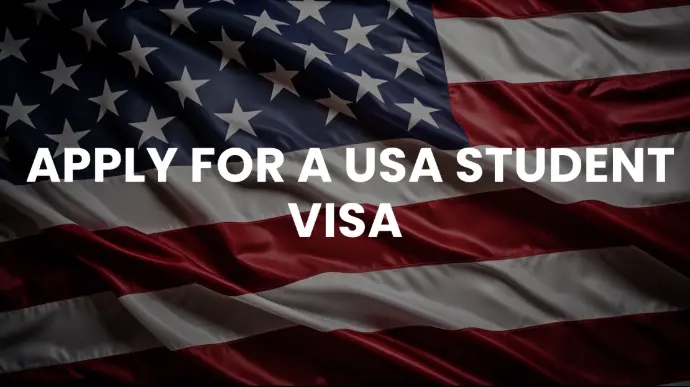Fund Requirements for Non-SDS Applicants: A Comprehensive Guide
Understanding the financial requirements for the Non-SDS visa pathway is essential for international students aspiring to study in Canada. Unlike the SDS (Student Direct Stream) program, the Non-SDS program demands stricter financial proof, making it crucial to prepare the right documents, maintain a strong financial profile, and seek guidance from the best Canada student visa consultant to ensure a seamless application process.
What is the Non-SDS Program?
The Non-SDS (Non-Student Direct Stream) program caters to international students applying to Canadian educational institutions who do not meet the criteria for the SDS program. It is often used by students who:
- Cannot provide a Guaranteed Investment Certificate (GIC).
- Are applying to colleges not covered under SDS.
- Have lower IELTS scores or other SDS requirements unmet.
Why Non-SDS Applicants Must Show Proof of Funds
Proof of funds assures Canadian authorities that applicants can cover tuition, living expenses, and other costs, preventing financial burdens during their stay. Without adequate proof, visa applications are often denied.
Financial Differences: SDS vs. Non-SDS
- SDS Program: Requires a GIC of CAD $20,635 and proof of first-year tuition payment.
- Non-SDS Program: Offers more flexibility in presenting funds but requires additional documentation, such as bank statements, loan sanction letters, or sponsor proofs.
Financial Requirements for Non-SDS Applicants
1. Tuition Fees for One Year
Tuition fees depend on the institution and program:
- Undergraduate Programs: CAD $13,000–$20,000 annually.
- Postgraduate Programs: CAD $16,000–$25,480 annually.
2. Living Expenses
According to IRCC guidelines:
- Student: CAD $20,000 annually.
- First Dependent: CAD $4,000.
- Each Additional Dependent: CAD $3,000.
3. Other Mandatory Costs
- Health Insurance: CAD $600–$1,000 annually (varies by province).
- Travel Expenses: CAD $1,000–$2,000 for airfare and initial transportation.
Proof of Funds: What You Can Provide
1. Acceptable Financial Documents
- Savings Account Statements: Show a consistent balance over six months.
- Fixed Deposits: Provide a bank letter confirming their value and maturity.
- Education Loan Sanctions: Include the loan amount, purpose, and repayment terms.
- Sponsor Funds: Submit a sponsorship letter along with the sponsor’s financial documents, like bank statements and income proofs.
2. Document Standards
Ensure financial documents include:
- Account holder’s name.
- Bank details.
- Transaction history (if applicable).
- Current balance (converted to CAD).
3. Avoiding Common Errors
- Do not submit incomplete or outdated documents.
- Ensure the funds meet the minimum requirement after currency conversion.
How Much Money Do You Need to Show?
1. Single Applicant
- Tuition: CAD $20,000.
- Living Expenses: CAD $18,340.
- Total: CAD $14,690.
2. Applicant with Dependents
- Tuition: CAD $20,635.
- Living Expenses (Student + 1 Dependent): CAD $14,690.
- Total: CAD $34,917.
Tips for Strengthening Your Financial Profile
- Keep Funds Liquid: Highlight accessible funds like savings or fixed deposits.
- Maintain Consistency: Avoid unexplained deposits; provide documentation for large transactions.
- Prepare Supporting Explanations: Submit receipts or agreements for any unusual transactions.
Preparing for Submission
Timing Your Proof of Funds
Submit financial documents at the time of your visa application. Ensure funds are accessible throughout the processing period.
Formatting Requirements
- Translate non-English or non-French documents to meet IRCC standards.
- Ensure documents are certified and up to date.
Overcoming Challenges
1. Insufficient or Incorrect Documentation
Visa rejections often stem from incomplete or unclear financial records. Ensure your documents are thorough and meet all guidelines.
2. Currency Fluctuations
Exchange rate changes can impact your fund value. Keep a buffer to avoid shortfalls.
3. Financial Rejections
Common reasons include inconsistent funds, insufficient documentation, or unclear fund sources. Address these issues proactively.
Conclusion
Meeting financial requirements is a vital step for Non-SDS applicants seeking Canadian study permits. By understanding IRCC guidelines, preparing accurate documentation, and maintaining a strong financial profile, you can significantly improve your chances of visa approval. Seeking assistance from the best Canada student visa consultant can provide valuable insights and simplify the process.
Plan meticulously, stay organized, and pay attention to every detail to ensure your application’s success.


